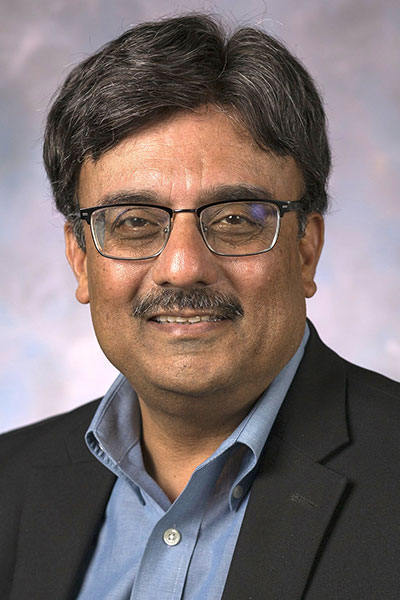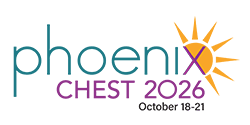CHEST 2025 will showcase the latest research and cutting-edge developments in COPD.

Presentations across dozens of sessions will provide clinicians with an unparalleled opportunity to refine their expertise and help patients manage this disease, said Shahid Sheikh, MD, FCCP, Chair of the Airways Disorders Curriculum Group and Chair of the Airways Disorders Network.
“These sessions will update us about the next generation of care so that we return to our practices with new knowledge that we can add to our ongoing therapies with confidence and have a positive impact,” he said.
Dr. Sheikh, Professor of Clinical Pediatrics at The Ohio State University College of Medicine and a pulmonologist and allergist/immunologist at Nationwide Children’s Hospital, highlighted a range of COPD-focused discussions in this year’s program.
Some of the latest trends in pharmacological approaches will be examined in COPD Management: Advanced Pharmacological Options, which will take place at 11:15 am CT on Wednesday, October 22.
The session will explore how monoclonal antibodies and ensifentrine can be integrated into existing therapies, as well as the application of triple inhaler therapy, the use of newer kinds of nebulizers in delivering medications, and other approaches.
Dr. Sheikh noted that monoclonal antibodies have been used successfully in other diseases but are still fairly new in the COPD field. For this reason, the session will serve as an introduction to the therapeutics, as well as an overview of recent related studies.
One of the debates in Current Controversies in COPD: A Pro-Con Debate, at 9:15 am on Tuesday, October 21, will examine whether dupilumab and inhaled triple therapy should be added to current therapies. A second debate will consider whether blood eosinophil count should be measured in all patients with COPD.
The Future of COPD Management, at 9:15 am on Wednesday, October 22, will address personalized therapeutic approaches and the use of telemedicine and radiological imaging to enhance diagnosis of COPD.
And Redefining COPD? A Pro-Con Debate, at 4:30 pm on Monday, October 20, will provide information about new tools and approaches to identify COPD at early stages so that it can be aggressively managed to delay or prevent long-term morbidity. As such, the session might be particularly relevant for clinicians involved in primary care who have opportunities to identify the disease close to its onset, Dr. Sheikh said.
The treatment of COPD has inherent challenges, he noted. The disease is influenced by genotypes, environmental factors, age, and more. COPD also does not manifest the same way in each patient, nor do the standard drugs and therapies affect each patient in the same manner.
As a result, many of the COPD sessions at CHEST 2025 will reflect a broader discussion about precision medicine, and clinicians will benefit from engaging with colleagues and refining their knowledge, Dr. Sheikh said.
“It’s very important to know of these changing therapies and what is new on the horizon,” he said, “so we can pick up the right therapies for the right patients to maximize their responses to treatment.”

Call for Topics Is Open
Feeling inspired by all the great sessions in Chicago? Help shape the curriculum for CHEST 2026, October 18 to 21 in Phoenix, by submitting topic ideas from areas you’re passionate about, topics affecting your practice, or new technologies you’d like to learn more about. The submission deadline is Tuesday, December 2, at 2 pm CT.


